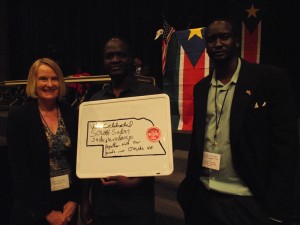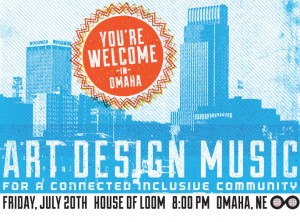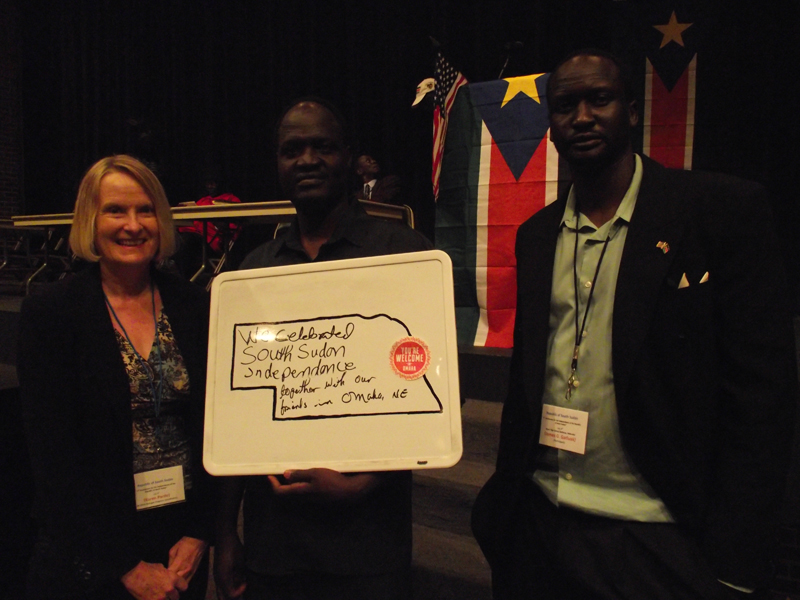
Seeking political asylum, refugee Joseph Bakura came to the United States in December of 2000. Having initially lived in Maine for six years, he says Nebraska is a very welcoming place.
“Nebraska has a large number of Sudanese,” he said. “That’s a good indication that Nebraska is a welcoming place.”
Bakura moved to Nebraska for two reasons: 1) he had a sibling who was in Cairo, Egypt, and had moved to Nebraska, and 2) It was very expensive to live in Maine.
Economic opportunity, lower costs of living, and a large Sudanese population are three reasons Bakura cites for moving to Nebraska. Bakura not only has his sibling in Nebraska, but also members of his tribe. As a Roman Catholic, he attends St. Patrick’s Sudanese mass every Sunday at 11:00 a.m.
Though Bakura has been living in the United States for twelve years now and has a career as a behavior services technician, he said seeking political asylum was not an easy process.
“When I left the country, it took two days to get to the border,” Bakura said. He initially didn’t know anyone on the train and had to fear being caught by Sudanese officials. Eventually, he met someone from his tribe and they were able to sit together. To enter Egypt, they had to take a steamboat for 24 hours. Then they took another train for 24 hours to reach Cairo.
Once in Cairo, Bakura applied for political asylum at the United Nations High Commission for Refugees. He was lucky that it took only three months for him to get his status. Many people wait years or even decades before receiving their status. (Fewer than one percent of refugees are ever resettled in a third country.)

Bakura then had to be interviewed by a U.S. government immigration lawyer and meet with the International Organization for Migration (IOM). After passing the interview, Bakura took a one-way flight from Cairo to the United States. He ended up in Portland, Maine, where Catholic Charities first assisted him. (Refugees to the U.S. have to repay their plane ticket, and they are expected to find employment and become self-sufficient in a short period of time.)
Bakura said the three-day orientation he had to go through when first coming to America went easier for him than some because he already spoke English.
“In Sudan, I studied philosophy and theology,” he said.
Growing up in a Southern Sudan town, Bakura said youth and the educated were especially targeted for persecution — both racial and religious — by the North.
Bakura is happy to now be living in Nebraska. “I’m just grateful for being here,” he said. “It is a home for me.”
For more information and resources relating to refugees in Omaha, visit the Southern Sudan Community Association.

